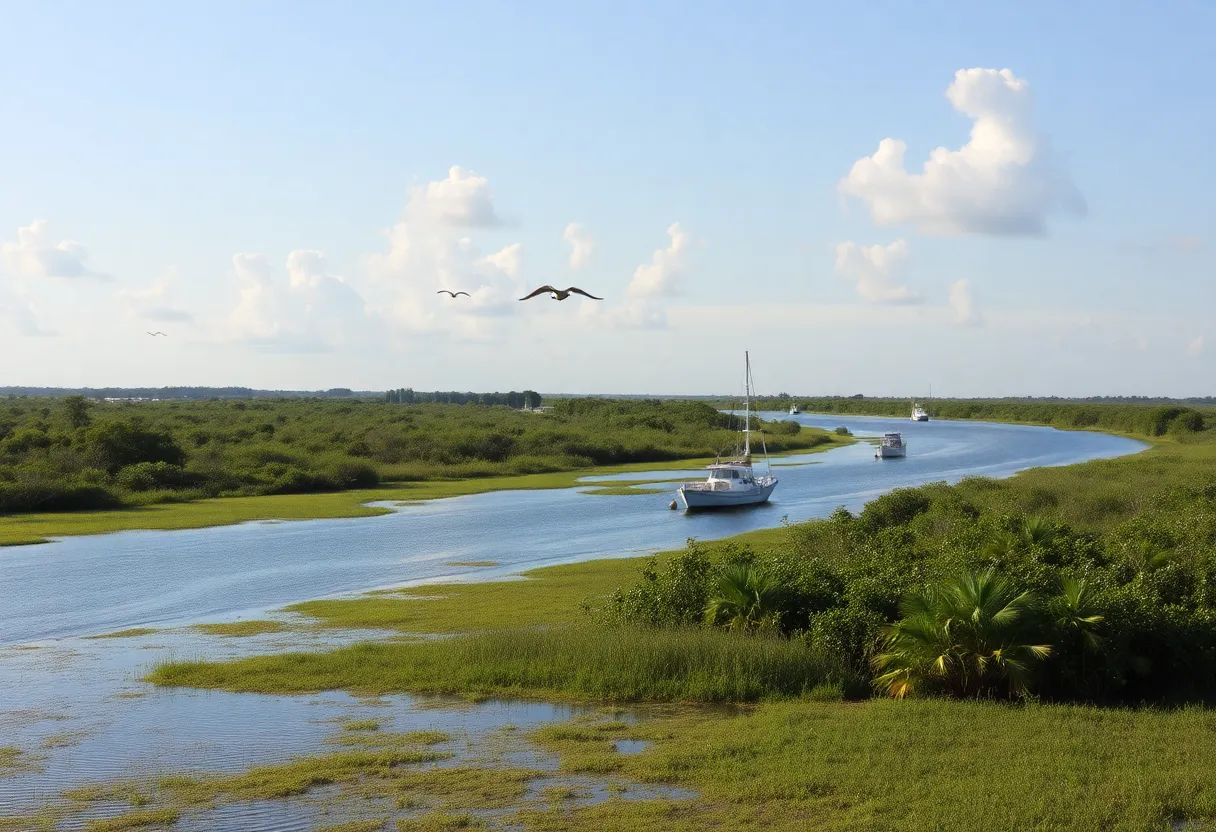News Summary
Florida Governor Ron DeSantis has signed the ‘Kill the Drill’ bill, protecting sensitive environmental areas from oil drilling activities. The law prohibits drilling within ten miles of National Estuarine Research Reserves. This decision follows public protests against proposed drilling in Calhoun County and aims to safeguard ecosystems while supporting local fishing economies. The legislation reflects a commitment to environmental conservation and has received strong support from various community leaders and organizations.
TALLAHASSEE, FL – Florida Governor Ron DeSantis has officially signed the “Kill the Drill” bill, also known as HB 1143, which aims to safeguard sensitive environmental areas from oil and gas drilling activities. The legislation was enacted on June 26, 2024, following overwhelming support in the Florida Legislature, with only one senator voting against it.
The new law prohibits any drilling for oil or gas within a ten-mile radius of National Estuarine Research Reserves (NERR), a designation that includes the Apalachicola National Estuarine Research Reserve. This area is recognized as one of the most productive estuarine systems in the northern hemisphere, playing a vital role in supporting migratory bird populations and the local fishing industry, which has an estimated annual value of $14 million to $16 million.
The decision to implement such restrictive measures comes in response to significant public opposition against proposed drilling by Clearwater Land & Minerals in Calhoun County, located just west of the Apalachicola River. In April, a series of protests were organized, urging the Florida Department of Environmental Protection (DEP) to reconsider plans for granting an exploratory drilling permit to Clearwater Land & Minerals.
The Apalachicola Riverkeeper, an environmental advocacy group, took action by challenging the drilling permit in court, underlining the potential environmental risks that drilling could impose on both the ecosystem and local economies. The DEP had later denied Clearwater’s application for a drilling permit, following recommendations from an administrative judge indicating potential harm to the unique hydrology in the region.
The bill gained traction through the advocacy of local lawmakers and community leaders, who underscored the necessity of the legislation to protect the environment and support local economies reliant on the health of the Apalachicola River and its ecosystem.
In addition to banning drilling activities near NERRs, the bill also applies restrictions to designated rural areas of opportunity within ten miles of these reserves. The Northwest Rural Area of Opportunity (RAO) encompasses several counties, including Calhoun, Franklin, and Wakulla, which are recognized as economically distressed. This legislation aims to prevent any further encroachment that could threaten these vital ecosystems.
An analysis conducted regarding the feasibility of oil extraction by Clearwater Land & Minerals revealed that the chances of successfully striking oil in the proposed area were only 30%. Furthermore, Florida’s crude oil reserves constitute less than one-tenth of a percent of the nation’s total production, highlighting limited potential benefits against substantial environmental risks.
The ongoing environmental challenges faced by the Apalachicola River have historically sparked community outrage, especially in light of previous drilling proposals. In a collaborative effort, the concerned community rallied support through campaigns that included meetings and demonstrations, advocating for environmental protection measures. Following the bill’s passage, Cameron Baxley, representing the Apalachicola Riverkeeper, acknowledged this legislative step as a victory for the community and the environment.
Lawmakers, including Representative Jason Shoaf and Senator Corey Simon, emphasized that the legislation is reflective of a broader commitment to ensuring environmental protections within Florida, especially given the frequent challenges posed by oil drilling and spill incidents to the state’s ecosystems. The bill has garnered wide-ranging support from environmental organizations and local businesses reliant on the thriving ecosystem of the Apalachicola River and Bay, marking a significant turning point in the fight against oil drilling activities in these critical areas.
The successful enactment of the “Kill the Drill” bill signifies a proactive approach towards environmental conservation, reinforcing the commitment to protect Florida’s natural resources for future generations.
Deeper Dive: News & Info About This Topic
HERE Resources
Severe Weather Hits Tallahassee: Tornadoes Confirmed in Leon County
Tallahassee Hosts Benefit Concert for Clean Water Initiative
Additional Resources
- Tallahassee.com: Gov. DeSantis signs bill banning oil drilling along Apalachicola River
- Wikipedia: Oil drilling
- Tallahassee.com: Hearing set for request to block oil drilling along Apalachicola River
- Google Search: oil drilling environmental impact
- Tallahassee.com: DeSantis urged to sign oil drilling ban for Apalachicola River Basin
- Google Scholar: oil drilling environmental concerns
- Tallahassee.com: Proposed law would block oil drilling near Apalachicola Bay
- Encyclopedia Britannica: Oil drilling
- Tallahassee.com: DeSantis will decide fate of oil drilling ban along Apalachicola River
- Google News: Florida oil drilling

Author: STAFF HERE TALLAHASSEE WRITER
The TALLAHASSEE STAFF WRITER represents the experienced team at HERETallahassee.com, your go-to source for actionable local news and information in Tallahassee, Leon County, and beyond. Specializing in "news you can use," we cover essential topics like product reviews for personal and business needs, local business directories, politics, real estate trends, neighborhood insights, and state news affecting the area—with deep expertise drawn from years of dedicated reporting and strong community input, including local press releases and business updates. We deliver top reporting on high-value events such as Springtime Tallahassee, Tallahassee Jazz & Blues Festival, and LeMoyne Chain of Parks Art Festival. Our coverage extends to key organizations like the Greater Tallahassee Chamber of Commerce and United Way of the Big Bend, plus leading businesses in education, healthcare, and insurance that power the local economy such as Florida State University, Tallahassee Memorial HealthCare, and Capital Health Plan. As part of the broader HERE network, including HEREJacksonville.com, HEREOrlando.com, HEREStPetersburg.com, and HERETampa.com, we provide comprehensive, credible insights into Florida's dynamic landscape.


